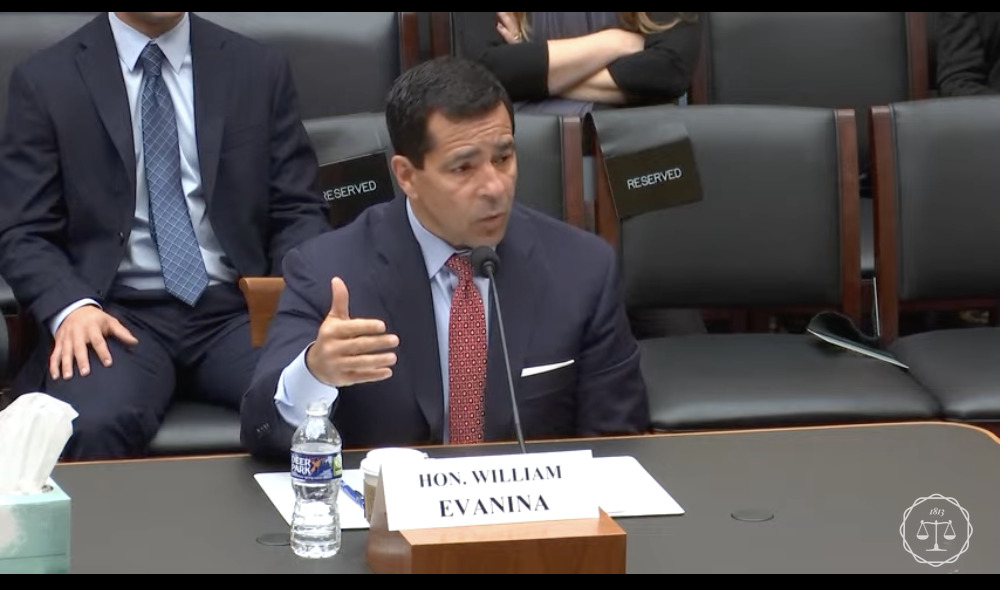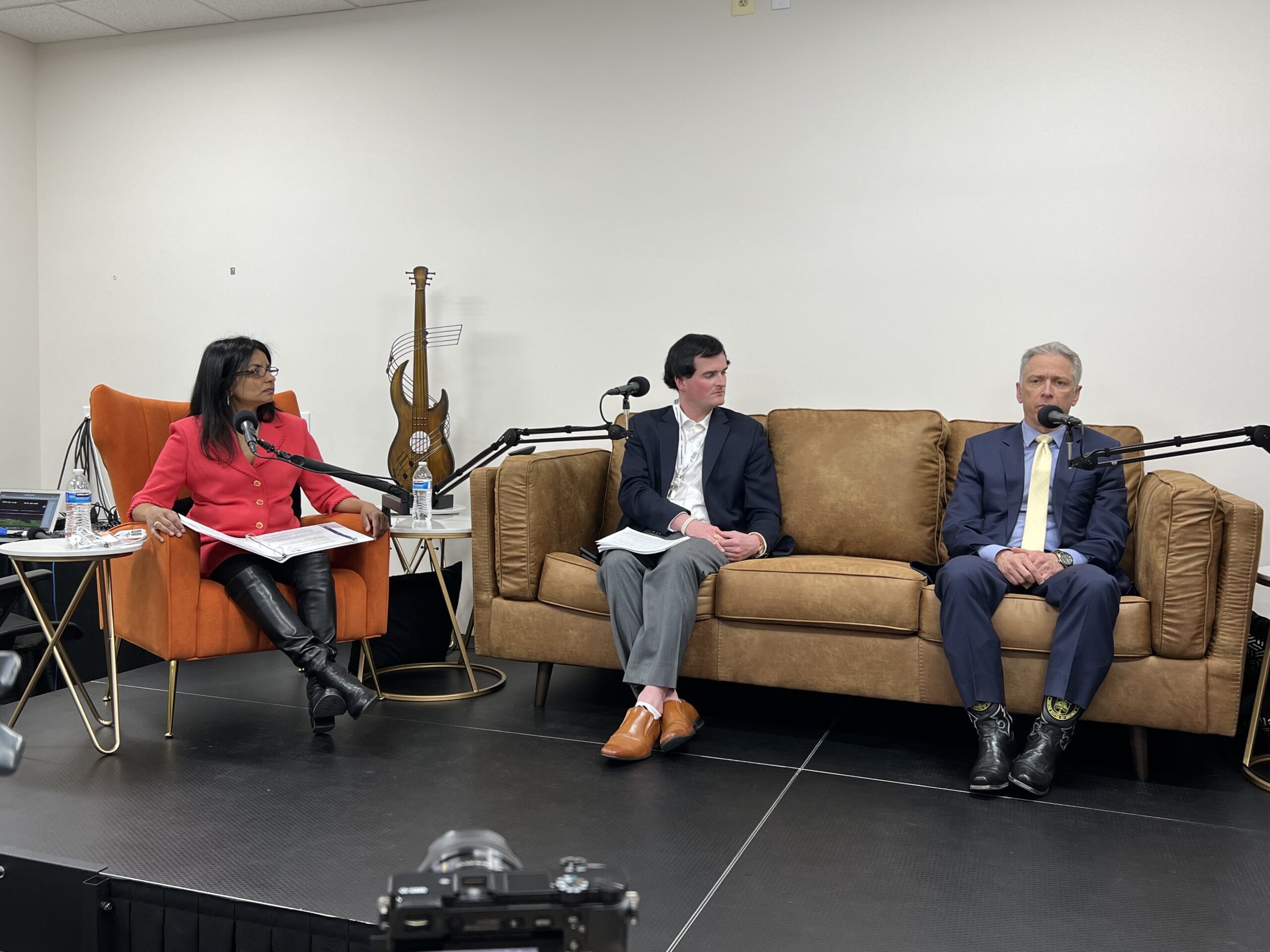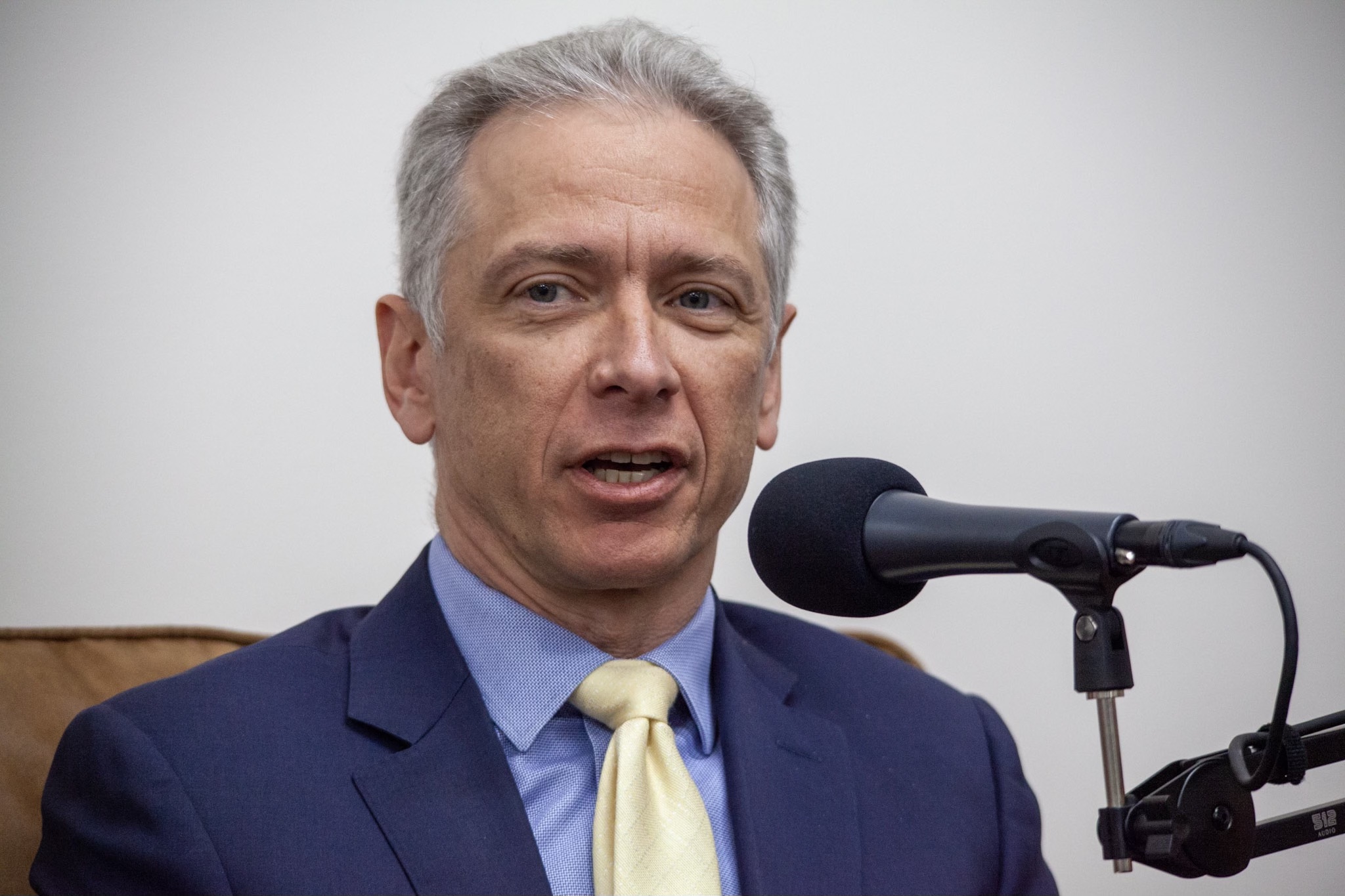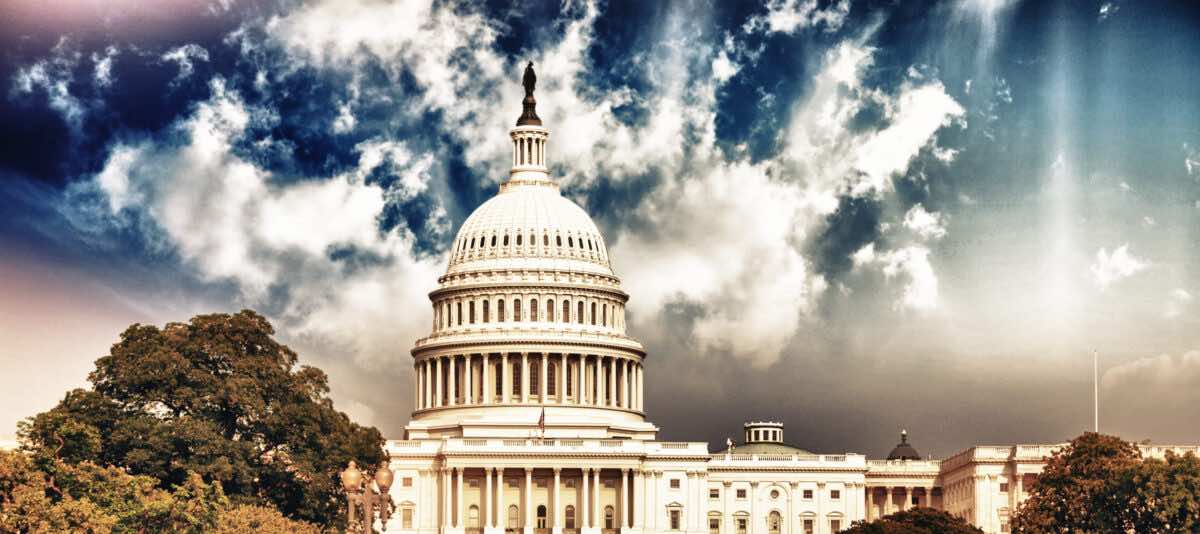IP Leaders Tell Congress, AI Masters Attendees, It’s Past Time for a Solid U.S. Innovation Strategy
“China established a national data bureau last month that will govern how they collect, share and integrate their data sets, while the United States doesn’t even have a privacy framework yet, ‘much less a strategy.’” – Rama Elluru at AI Masters
The U.S. House of Representatives’ Subcommittee on Courts, Intellectual Property and the Internet held a hearing Wednesday that was part one of a series it will be running on IP and “Strategic Competition with China.” On the same day, speakers on the final panel of IPWatchdog’s AI Masters discussed many of the same issues addressed in the hearing, with the overwhelming takeaway across both panels being that the United States needs a new plan when it comes to IP protection in cutting-edge technology sectors, where China is increasingly outpacing U.S. innovation.
The House hearing was introduced by Subcommittee Chair Darrell Issa (R-CA), who explained that the United States’ national security is at risk because China is on a quest to achieve technological superiority. Issa told his colleagues that “the witnesses will both educate us, and to a certain extent, scare many of us.”
Issa told the Subcommittee that China is the fastest-growing foreign country of origin for obtaining U.S. patents, having jumped from fourth place in 2018 to second place in 2022. He also referred to the World Trade Organization’s (WTO’s) decision to grant a waiver of IP rights for COVID-19 vaccine-related technologies as “essentially a transfer of technology to China and other countries.” While the issues may sometimes seem partisan, Issa said presidents on both sides of the aisle have at times wanted to appear generous over protecting American ingenuity, something that would be addressed by his bill, the “No Free TRIPS Act.”
Issa also set the stage for another topic discussed in the hearing, that of the trend toward banning non-compete agreements, which he said further threatens U.S. national security. “My home state of California has effectively made non-compete illegal. As a result, anyone who takes a job in California has a free ticket to go from California with any technology they’ve gained, including trade secrets, and simply go to another country and sell it,” Issa said.
The Subcommittee’s Ranking Member, Hank Johnson (D-GA), echoed many of Issa’s sentiments, but stressed that these hearings targeting China should not be misconstrued as anti-Asian sentiment. “Our country has seen an alarming rise in harassment against Asian Americans,” Issa noted. “I want to be clear that we’re talking about a concerted effort by the Chinese government to steal IP,” he added.
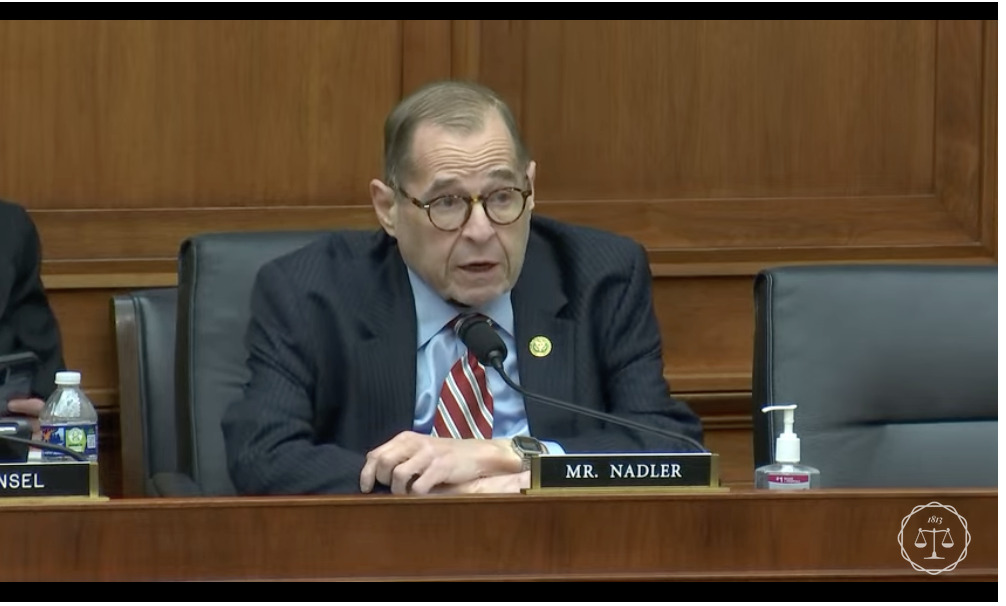
The witnesses at the hearing included the Honorable William Evanina, Founder and CEO, Evanina Group, LLC, who has worked with the FBI, the CIA, and as the Senate Confirmed Director of the National Counterintelligence and Security Center. Evanina told the Subcommittee members that the United States’ national and economic security is squarely at risk due to its failure to take the threat posed by China to IP theft seriously, noting that losses from theft of IP from China alone – and just from what we know – is between $400 billion and $600 billion per year, which amounts to about $4,000 to $6,000 per American family of four after taxes. “Our economic global supremacy, stability and long-term vitality is not only at risk, but clearly in the crosshairs of Xi Jinping and his communist regime,” Evanina said.
In a question from Representative Scott Fitzgerald (R-WI) later in the hearing about how to wean companies off of China in a capitalist society, when it’s such a prime market, and whether that might require legislation, Evanina said it may be time for companies to rethink their mindset when it comes to China.
“It’s hard to say to a capitalist society business entity, ‘don’t invest in China because of X,’ but for the first time ever I’ll proffer to the Subcommittee that we are in a space right now where our global supremacy, our capitalist mindset, is clearly superseding and overlapping with our national security and national interests,” Evanina warned.
He continued: “We have to look at what’s the obligation of a financial industry, a corporate or startup, to say your investment in the CCP is fair from a capitalist perspective, but let’s look at your issues and next quarter earnings versus the national interest and national security. I think that’s a really tough conversation to have, but we’re going to have to have that.”
Evanina added, however, that considering recent developments in Hong Kong and Taiwan, he believes that investors in China will soon start to feel the pain via an inability to withdraw the money from investments, which may change the course of American investment in China without the need for legislation.
While several members of congress pressed Evanina on whether the Biden Administration’s decision to end President Donald Trump’s “China Initiative” in 2022 was detrimental to the efforts to defend U.S. innovation, he assured them that the project continues, just under a different name.
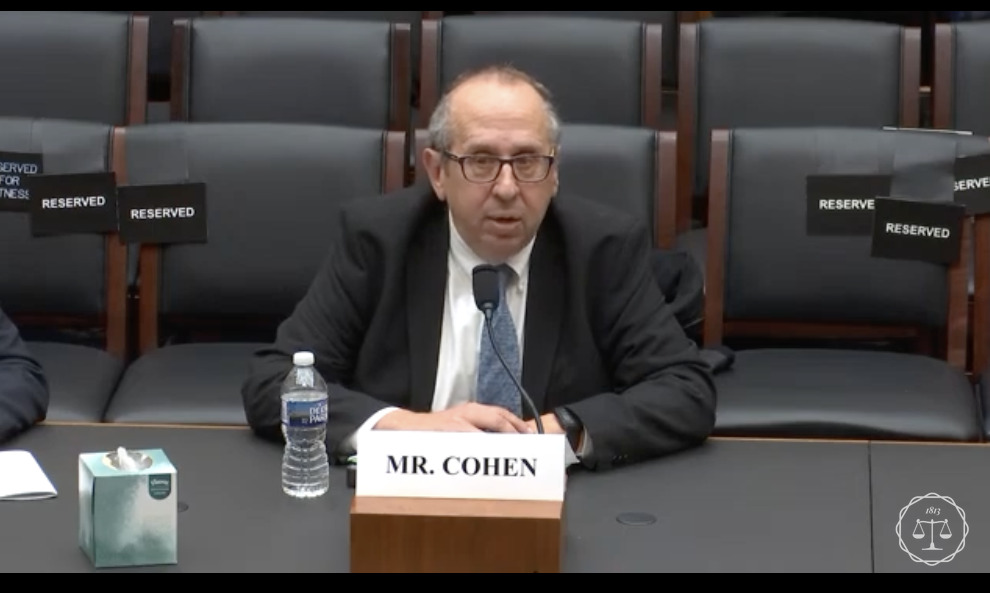
This development, coupled with the wide availability of injunctions in China, are contributing to China’s growth toward its goal of becoming a center for international IP litigation, Cohen said. Cohen noted that China also promotes many of its over 2,000 IP judges to higher roles in the government, while “we have yet to see a Federal Circuit judge promoted to the Supreme Court.”
Later, Cohen also agreed with Subcommittee Member Adam Schiff (D-CA) that the role of the U.S. Intellectual Property Enforcement Coordinator (IPEC) has been vacant far too long, and that filling the role would go a long way toward coordinating the efforts of the many “alphabet soup” agencies across the government that are involved in IP protection and enforcement.
Jamieson Greer of King & Spalding and Charles Duan of the American University Washington College of Law also provided testimony at the hearing.
AI Masters Panelists Weigh in on China
From Left: Rama Elluru, Brad Watts and Andrei Iancu
About half an hour north of the Subcommittee hearing, at IPWatchdog’s headquarters in Ashburn, VA, during the final panel of the AI Masters program, on a panel about AI and U.S. economic and national security, former U.S. Patent and Trademark Office (USPTO) Director Andrei Iancu, like Cohen, said there needs to be someone at a high level in charge of IP in the U.S. government to ensure a solid strategy against threats like China.
“I believe there should be a Cabinet level position for American innovation,” Iancu said. “That can take many different forms, but it’s such a critical component of our national economy and security that it’s just not enough to have a commission someplace. It needs to be elevated to a Cabinet-level position and then, within that, there should be a whole of government approach to strategizing on all of these issues.”
Rama Elluru
While China has a clearly articulated innovation strategy, the United States does not, said Rama Elluru of the Special Competitive Studies Project, who also served as Director of the National Security Commission on Artificial Intelligence (NSCAI). The NSCAI issued a report in 2021 that warned the United States is falling short on investment in AI to compete with China and also is unprepared to defend against AI threats to national security.
Elluru noted that China established a national data bureau last month that will govern how they collect, share and integrate their data sets, while the United States doesn’t even have a privacy framework yet, “much less a strategy.”
Iancu added: “It is so important that somebody starts thinking about national innovation strategies, whether globally across technologies or for AI more narrowly; or at a minimum, somebody should be thinking about data protection strategies.”
Andrei Iancu
Brad Watts of the Global Innovation Policy Center (GIPC), who formerly served as Minority Chief Counsel of the Senate Judiciary Committee Subcommittee on Intellectual Property for Senator Thom Tillis (R-NC), moderated the panel, and also asked Iancu and Elluru about what it means from a values perspective if the United States is no longer first. Elluru answered that the implications go far beyond merely falling behind in economic terms.
“At the core of tech competition is also the values competition – they set the rules of the road for how these emerging technologies affect our society,” Elluru said. “Is it going to be authoritarian values or is it going to be democratic values?”
The next IPWatchdog Masters program, ITC Masters, will take place April 11-12 at IPWatchdog headquarters. Register here.

